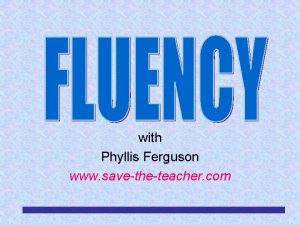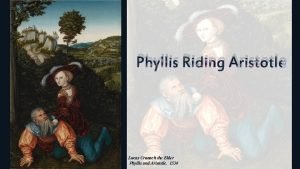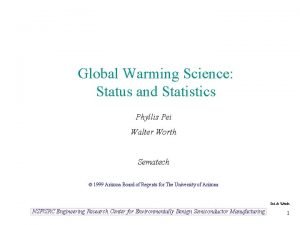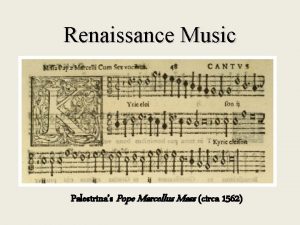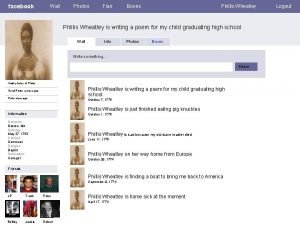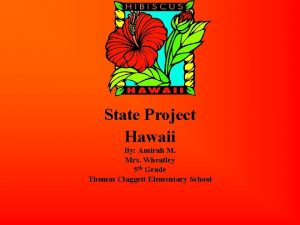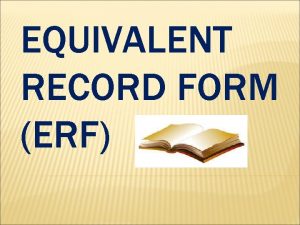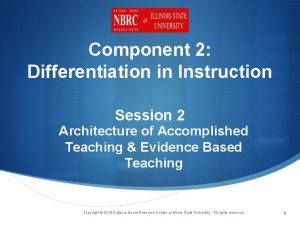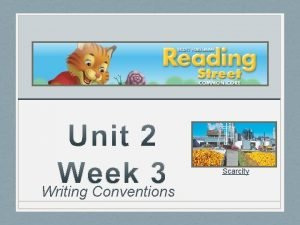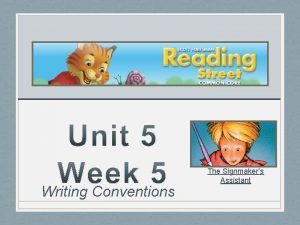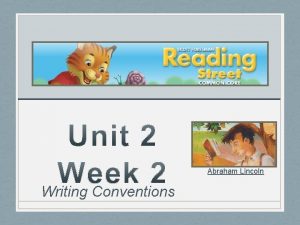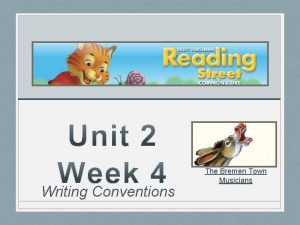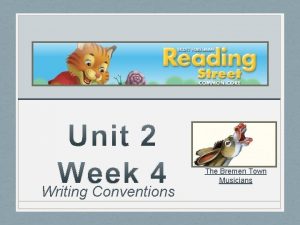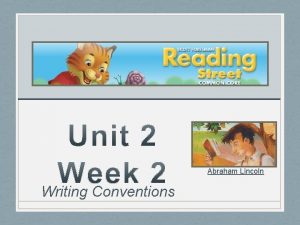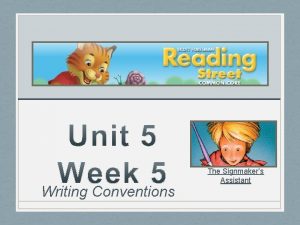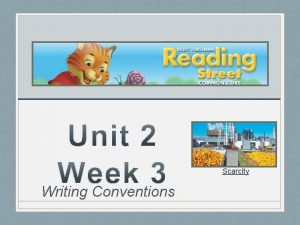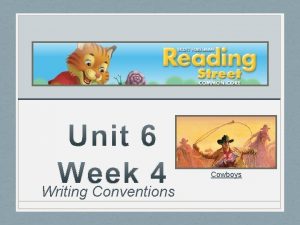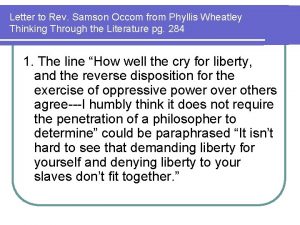Writing Conventions Phyllis Wheatley 1 Phyllis Wheatley accomplished













- Slides: 13

Writing Conventions Phyllis Wheatley (1) Phyllis Wheatley accomplished many amazing feats in her life. (2) She learned to read and write. (3) While learning to read and write may not sound like an unusual accomplishment, Wheatley lived in the American colonies during the late 1700 s, when only a tiny handful of people were actually literate. (4) Moreover, Wheatley studied History, geography, Latin, and many other difficult subjects. (5) In 1767 she publishes her first poem in a local newspaper. (6) Later, while in London, Wheatley met Selina Hasting, an English countess who helped her to publish a book of poetry. (7) Wheatley’s book was the first poetry collection ever published by an African-American writer. (8) As she toured England to promote her book, noted figures such as Benjamin Franklin and French writer Voltaire recognized her achievement. (9) Wheatley even sent a poem to George Washington, praising him for his efforts in the American Revolution. (10) Phyllis Wheatley’s determination paved the way for the later successes of her life.

Answers to Writing Conventions… 1. Answer: A Standard: Demonstrate understanding and control of the rules of the English language To answer this question, you need to have a sense of what the whole paragraph is about: the accomplishments of Phyllis Wheatley. You also need to recognize where sentence 2 is located in the paragraph: near the beginning. Choices B and C are transitions implying contrast, yet nothing is being contrasted here. Choice D suggests that the author wishes to add to ideas already stated. The paragraph is just introducing the ideas, however, so A is the most logical choice. 2. Answer: B Standard: Demonstrate understanding and control of the rules of the English language In order to answer this question, you must consider the writer’s purpose and audience. A history report is an academic piece of writing, so the language should be formal. You can rule out choice C because bunch” is too informal. Choice D is formal language, but it doesn’t make sense with the subject, a group of people. Choice A is also somewhat formal but the wording is imprecise. Choice B is formal enough to fit the purpose of writing and accurate enough to reflect the idea. Therefore the correct answer is B.

Answers to Writing Conventions 3 Answer: C Standard: Demonstrate understanding and control of the rules of the English language This passage is written in the past tense. All the sentences should be in the past tense. Choices A, B, and D are in the past tense. Choice C is in the present tense and is the correct answer. 4 Answer: B Standard: Apply conventions of standard American English and format Proper nouns, as in Choices A and D, are capitalized. Geography and history are not proper nouns. Choice C is not capitalized. B is the choice with the incorrect capitalization, so it is the correct answer. 5 Answer: D Standard: Demonstrate understanding and control of the rules of the English language A participial phrase includes a verb ending in –ing that acts as an adjective. Choice A is a gerund phrase. Choice B is an infinitive phrase. Choice C is a subordinate clause. Choice D, a participial phrase, is the correct answer.

Language Conventions What is the correct way to write sentence below? A Teresa studied for an hour, outlined her paper, and then had taking a break. B Teresa studied for an hour, outlined her paper, and then takes a break. C Teresa studied for an hour, outlined her paper, and then took a break. D Teresa studied for an hour, outlined her paper, and then will take a break.

Language Conventions For this question, think about how often you hear people say, “then had taking. ” If it sounds odd to you, it is because there is no such verb tense. This means choice A is wrong. Choices B and D do not seem right either. The verb tense shifts in both of these sentences. You might notice this specifically, but you probably sensed there was something strange about saying Teresa“studied” and then “takes” or “will take” a break. Contrast this with choice C, which uses the same verb tense throughout. This is the correct answer.

Agenda Warm Up – Language and Conventions “Winter Dreams” Literary Analysis Language Analysis Vocabulary Summarizer – Quick Write

Today’s Standards ELAALR 1: Demonstrate comprehension: Identify and analyze elements of fiction. Theme Symbolism Language Style Point of View

A Closer Look at Phrases A gerund phrase combines a gerund with the object of the gerund or other modifiers. A gerund is a verb used as a noun, with an –ing ending. A participial phrase includes the participle and the object of the participle. A participle is a form of a verb, but it does not act as a verb. Rather, it acts as an adjective, often ending in –ing or –ed. An infinitive phrase includes an infinitive and any modifiers or complements. An infinitive is always a verb with to in front of it. The phrase can serve as a noun, an adjective, or an adverb.

“Winter Dreams”




Summarizer – Quick Write How does Winter Dreams fit into Turmoil in American - use at least 2 quotes using MLA parenthetical documentation (Fitzgerald 7) in your entry
 Phyllis ferguson
Phyllis ferguson Phyllis russell
Phyllis russell Phyllis randolph frye
Phyllis randolph frye Phyllis pei
Phyllis pei Phyllis and aristotle
Phyllis and aristotle Phyllis pei
Phyllis pei Composer of pope marcellus mass
Composer of pope marcellus mass Pictures of phillis wheatley
Pictures of phillis wheatley Best ice cream wheatley
Best ice cream wheatley Dr wheatley hawaii
Dr wheatley hawaii Leadership and the new science margaret wheatley
Leadership and the new science margaret wheatley Ma equivalent meaning
Ma equivalent meaning Defrost using internal heat is accomplished using
Defrost using internal heat is accomplished using National board component 2 examples
National board component 2 examples
